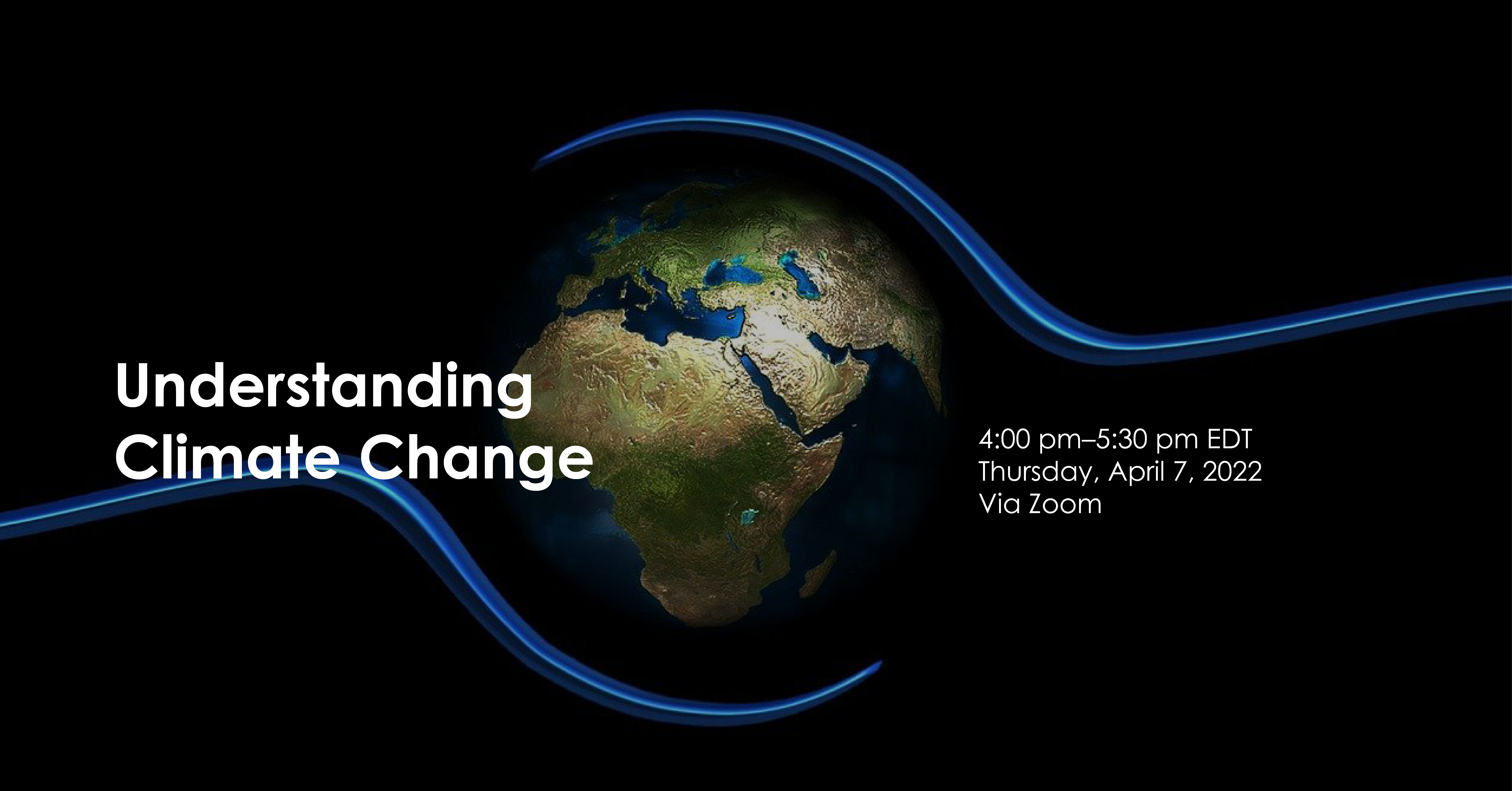K-12 & Community College Virtual Program

April 7, 2022
Via Zoom | 4:00-5:30pm EDT
0.5 CEU/5 PDCH
$25 (free for Teacher-Student Initiative teachers)
Climate Change is impacting the lives of millions of people around the world. This UNC World View virtual program addresses the role of educators in combating climate change. K-12 and community college participants will gain knowledge and resources on climate change, including how they can prepare students to make informed decisions that may benefit the planet.
Schedule | Speakers | Plenary Talks | Program Materials | Support
Schedule
| Thursday, April 7, 2022 | |
| 4:00 p.m. | Welcome Director of UNC World View Charlé LaMonica, Director, World View, UNC-Chapel Hill |
| 4:05 p.m. | Understanding Global Climate Change and Air Pollution and Their Links with Human Health Prof. Jason West |
| 4:40 p.m. | Break |
| 4:45 p.m. | Managing flood risk in a changing climate in North Carolina Prof. Miyuki Hino |
| 5:20 p.m. | Q & A with Prof. Jason West and Prof. Miyuki Hino |
| 5:30 p.m. | Closing |
Speakers
| WELCOMERS | ||
 |
Director of UNC World View Charlé LaMonica has held service to the state front and center in her work. Since 2013, LaMonica has expanded UNC World View’s support of educators and increased partnerships in both rural and urban settings. LaMonica and the World View team have led more than 21 global study visits, taking K-12 and community college educators around the world to learn about educational systems, classroom experiences, history, business and culture. Since the founding of UNC World View in 1998, more than 25,000 teachers have participated in UNC World View programs from every county in North Carolina. | |
| PLENARY SPEAKERS |
|
|
 |
Dr. J. Jason West conducts interdisciplinary research addressing air pollution and climate change by using models of atmospheric chemistry and transport and tools for quantitative policy analysis. His work aims to understand the relationships between air pollution and climate change and their relevance for science and policy on local through global scales. Using computer models, Dr. West is currently exploring the effects of changes in emissions on global air quality (ozone and particulate matter), the international transport of air pollutants, the health effects of air pollution, the effects of climate change on air quality and the radiative forcing of climate. Recently, Dr. West led the first study of the co-benefits of greenhouse gas (GHG) mitigation for air quality and human health to use global atmospheric models and future scenarios; results showed that the monetized co-benefits exceeded previous co-benefits estimates and exceeded the global costs of GHG mitigation through 2050. |
|
 |
Dr. Miyuki Hino is an assistant professor in the Department of City and Regional Planning and an adjunct assistant professor in the Environment, Ecology, and Energy Program at the University of North Carolina at Chapel Hill. Her research examines the linkages between climate hazards, governance, and public policy to drive effective and equitable adaptation to climate change. Recent work has focused on the impacts of sea level rise, the effects of flood risk on property markets, and the use of managed retreat in adapting to climate change. Dr. Hino received a Ph.D. in Environment and Resources from Stanford University and a B.S. in Chemical Engineering from Yale University.
|
Plenary Talks
Understanding Global Climate Change and Air Pollution and Their Links with Human Health
Prof. Jason West
Climate change is among the most important problems our society faces. Air pollution has received increased attention for its widespread effects on global health – in China and India, certainly, but also in the US. Here we will discuss the scientific foundations for both climate change and air pollution and discuss what they mean for society. We’ll then address how these problems are related with each other and with global public health. For example, climate change could make air pollution worse in polluted regions. Similarly, actions to reduce greenhouse gas emissions will have widespread benefits for reduced air pollution and improved health.
Managing flood risk in a changing climate in North Carolina
Prof. Miyuki Hino
Climate change is already affecting flood risk in North Carolina, and projections indicate significant increases in the coming decades. In this talk, we will discuss observed impacts and what we expect to see in the future. Then, we will discuss government programs to assist in disaster recovery and support adaptation to climate change. These programs can support households and reduce their risk from flooding, but they can also exacerbate societal inequalities. Challenges and opportunities for improvement will be presented.
Program Materials
General support provided by:
 |
